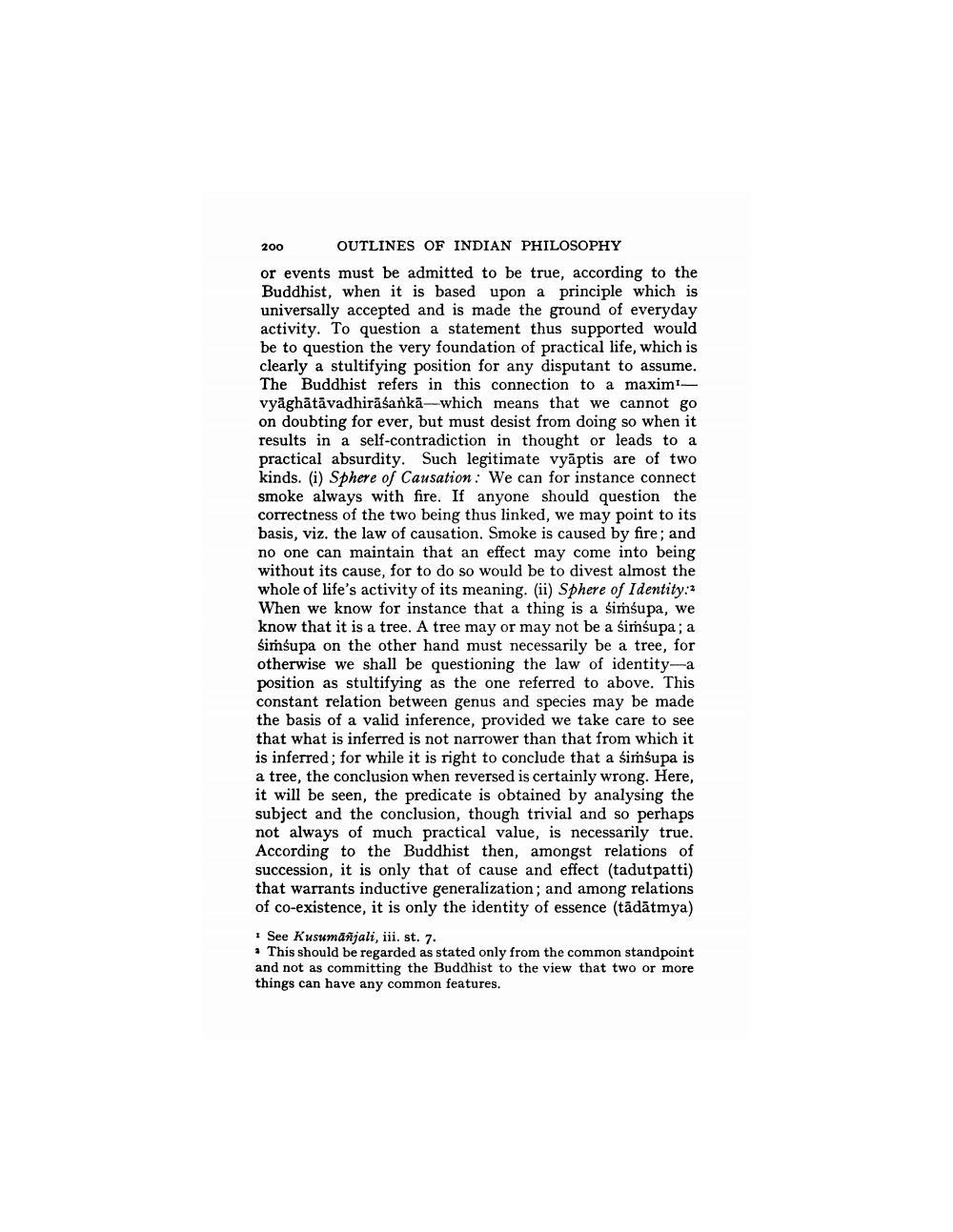________________
200 OUTLINES OF INDIAN PHILOSOPHY or events must be admitted to be true, according to the Buddhist, when it is based upon a principle which is universally accepted and is made the ground of everyday activity. To question a statement thus supported would be to question the very foundation of practical life, which is clearly a stultifying position for any disputant to assume. The Buddhist refers in this connection to a maximvyāghātāvadhirāśankā-which means that we cannot go on doubting for ever, but must desist from doing so when it results in a self-contradiction in thought or leads to a practical absurdity. Such legitimate vyāptis are of two kinds. (i) Sphere of Causation : We can for instance connect smoke always with fire. If anyone should question the correctness of the two being thus linked, we may point to its basis, viz, the law of causation. Smoke is caused by fire; and no one can maintain that an effect may come into being without its cause, for to do so would be to divest almost the whole of life's activity of its meaning. (ii) Sphere of Identity: 2 When we know for instance that a thing is a simśupa, we know that it is a tree. A tree may or may not be a simśupa; a simsupa on the other hand must necessarily be a tree, for otherwise we shall be questioning the law of identity-a position as stultifying as the one referred to above. This constant relation between genus and species may be made the basis of a valid inference, provided we take care to see that what is inferred is not narrower than that from which it is inferred; for while it is right to conclude that a simśupa is a tree, the conclusion when reversed is certainly wrong. Here, it will be seen, the predicate is obtained by analysing the subject and the conclusion, though trivial and so perhaps not always of much practical value, is necessarily true. According to the Buddhist then, amongst relations of succession, it is only that of cause and effect (tadutpatti) that warrants inductive generalization, and among relations of co-existence, it is only the identity of essence (tādātmya)
See Kusumāñjali, iii. st. 7. • This should be regarded as stated only from the common standpoint and not as committing the Buddhist to the view that two or more things can have any common features.




